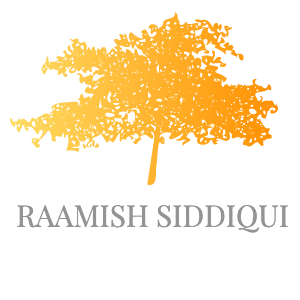The Practice of I'tikaf in Ramadan
Ramadan is a month of fasting, sacrifice, generosity, reflection, and devotion observed by Muslims all over the globe. Centuries have passed, but Ramadan has not lost its passionate spiritual meaning. The month of Ramadan reaches a pinnacle during the I’tikaf time. I’tikaf is a unique practice that marks the end of the holy month of Ramadan. But, unlike fasting or prayer (salah), a person who chooses to practise I’tikaf should stay at a mosque for ten days or less during the last ten days of Ramadan.
I’tikaf means to retreat from society for a temporary period to contemplate. For instance, when a believer is more spiritually prepared and more inspired in the final days of fasting, he secludes himself in a mosque, removing his thoughts from the pursuits of this world. In spiritual terms, this is called meditation; in intellectual terms, it is contemplation. ‘Zuhd’ is the Arabic word denoting detachment from the worldly in Islam.
The Focus of I’tikaf is detaching an individual from worldly interests. One retires from the material world and enters the spiritual realm. According to a hadith reported by one of the companions of the Prophet of Islam, the Prophet observed I’tikaf every year for ten days during Ramadan. However, in the year he passed away, he observed I’tikaf for twenty days.
During the closing days of the fasting month, this renunciation, or I’tikaf, is seen as an exceedingly desired form of devotion. In it, one withdraws from the world and turns to God. I’tikaf is, therefore, a complete version of what is necessary during this month of fasting, but God has not commanded that it be observed for the entire month as a concession to devotees.

The practice of contemplation in seclusion, known as I’tikaf, is present in various religions. It may take different forms, but its essence is universal
I’tikaf’s objective is to engage in self-reflection. During this process, one has time to think about one’s past and present life and what path to choose in the future. In the days of I’tikaf, a person should experience spiritual overhauling. During it, one engages in contemplation and reads the Quran more thoroughly. Reading is more than just reciting the Quran’s words; it is also about diving into the Quran’s more profound meaning and comprehending its message.
In this process, a Muslim tries to introspect himself as per the teachings of Islam. He tries to rediscover the Quran and reapply the Quranic teachings in his life. This rediscovery of the Quran is critical. Life is constantly changing and full of new experiences. In this way, it is a constant struggle for everyone. When a person enters I’tikaf and studies the Quran in isolation, he rediscovers the Quran in light of the new conditions he may be confronted with. This practice keeps a believer intellectually awake. In I’tikaf, one evaluates one’s response to situations and updates life accordingly.
The practice of contemplation in seclusion, known as I’tikaf, is present in various religions. It may take different forms, but its essence is universal. In our daily lives, we often get distracted and lose focus. Therefore, it is crucial to refocus our attention. This practice aims to guide us back to the right track when we have become derailed. It helps to transform a distracted soul into a focused one.
Ramadan is a month of profound spiritual significance. When a person quenches their thirst after a long period of thirst, eats food after a prolonged period of hunger, and finally gets some rest after being restless for a long time, they experience a unique kind of spiritual elevation. This is the daily Ramadan experience. I’tikaf is intended to supplement and broaden these spiritual experiences. Both fasting and I’tikaf are comparable but different. While fasting throughout Ramadan is common, entering I’tikaf elevates the experience, assuring heightened spiritual readiness for life’s challenges.
If fasting is a spiritual experience, I’tikaf is a spiritual break meant to prepare one for self-reconstruction. Ramadan is intended to promote spiritual development, and I’tikaf facilitates this process throughout the break. The spiritual experience earned should not go away with this month. Instead, it should serve as a beacon for the rest of the year.
